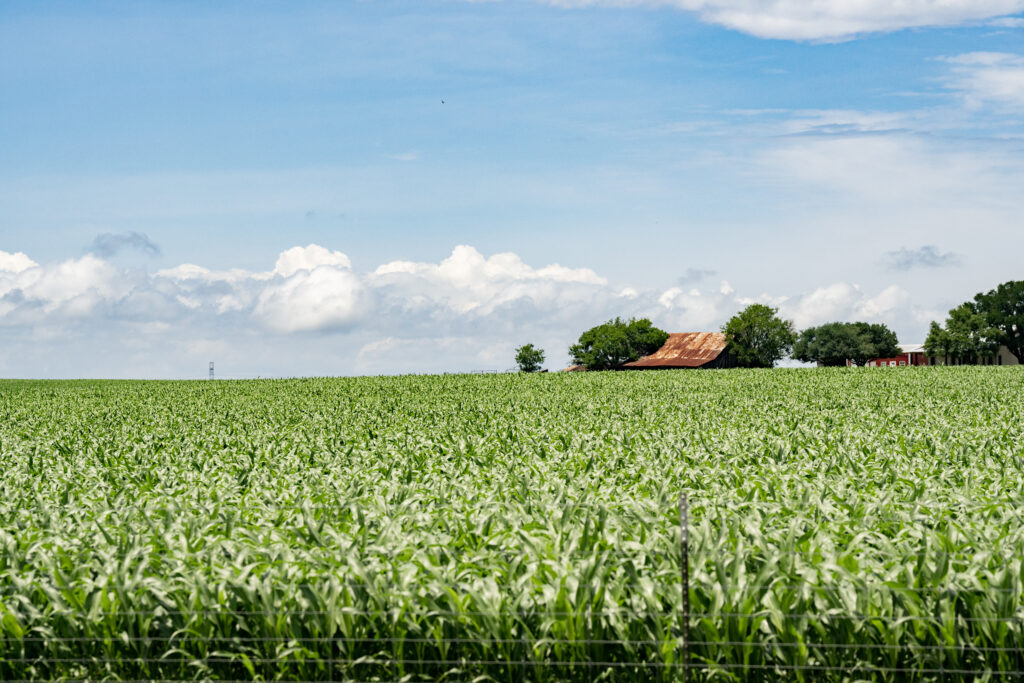Texas farmers produce more than 200 million bushels of corn on 1.5 million acres every year. Texas corn, which is used in feeds, foods, and industrial products, contributes annually more than 1.2 billion dollars to Texas agriculture economy. Nation wide, corn is the largest cash crop with 85 million acres of corn harvested each year producing 7 to 9 billion bushels.

Research Interests
- Improvement of maize for sustainable productivity and value-added profitability
- Tolerance and resistance of maize to abiotic (drought and heat tolerance) and biotic stress (aflatoxin)
- Development of maize inbred lines and populations with improved performance, quality (high lysine QPM) and processing properties for foods, feeds and industrial products
Faculty and Staff
Joseph Burke
Assistant Professor
Weed Science & Cropping SystemsSeth C. Murray
Professor and Eugene Butler Endowed Chair
Ronnie W. Schnell
Professor
Extension State Cropping Systems Specialist
Related Sites of Interest
- CIMMYT International Maize and Wheat Improvement Center
- Corn Research Program, Lubbock, TX
- Maize Genetics/Genomics Database Project
- Quantitative Genetics & Maize Breeding Program, College Station, TX
- Sorghum Research Program, Lubbock, TX
- Texas AgriLife Research
- Texas Corn Producers
- Variety Testing Information – Corn
- Variety Testing Information – Grain Sorghum
Learn More About Research Areas of Focus in Soil and Crop Sciences
In the realm of soil and crop sciences, research focuses on a myriad of critical areas that drive sustainable agricultural practices and global food security. Soil health and management take center stage, exploring ways to optimize soil fertility, structure, and nutrient cycling to enhance crop productivity. Genetic advancements in crop breeding and biotechnology are pursued to develop resilient varieties that withstand environmental stressors and ensure high yields. Precision agriculture, integrating technology and data analytics, aims to fine-tune farming practices, reducing resource waste and maximizing efficiency. The exploration of sustainable agroecosystems delves into the intricate relationships between crops, soil, and the environment, fostering environmentally friendly approaches. Such research not only informs farming practices but also contributes to vital policy discussions, shaping the future of agriculture in a rapidly changing world.



